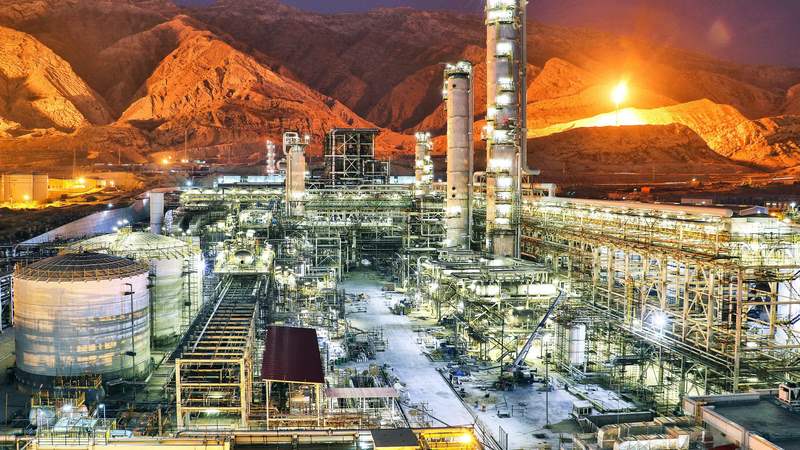
How is the Middle East shaping global petrochemical trade?
The petrochemical industry in the Middle East is a cornerstone of global commodity trade, driven by abundant natural resources and strategic geographic positioning. Ethylene, a fundamental building block in petrochemicals, is produced extensively in the Persian Gulf countries, where demand remains robust due to its applications in plastics and chemicals. Key exporters in the region leverage B2B marketplaces in Asia to connect with verified importers, ensuring streamlined supply chain solutions. Ethylene’s trade dynamics highlight its importance in the production of polyethylene and other derivatives essential for industrial applications.
Polypropylene, another critical petrochemical, sees significant production and export activity in West Asia. The region houses some of the largest suppliers globally, serving markets across Asia and beyond. Southwest Asia’s polypropylene market is bolstered by its competitive pricing and high-quality standards, making it a preferred choice for industries manufacturing plastic products.
Polybutadiene and Styrene Butadiene Rubber (SBR) are vital for the rubber industry, with Middle Eastern production catering to both regional and international markets. Pricing and market analyses reveal steady growth in demand, particularly in automotive and industrial applications. Similarly, Acrylonitrile Butadiene Styrene (ABS) and various resin types, including polyester, phenolic, and epoxy, are key exports from the Middle East, finding usage in construction, automotive, and consumer goods sectors.
Nylon and LPG components like butane and propane also contribute significantly to the region’s trade portfolio. West Asia’s nylon market is thriving due to its applications in textiles and engineering plastics, while LPG trade benefits from efficient supply chain networks connecting Middle Eastern producers to Asian buyers.
Platforms like Aritral simplify international trade by offering product listings, market insights, and AI-driven marketing tools, enabling businesses to navigate the complexities of petrochemical trade effectively.
-
 Hassas Plastik San Ve Tic. A.S. Bursa Turkey 1 months ago
Hassas Plastik San Ve Tic. A.S. Bursa Turkey 1 months ago Turkey
ABS ER400, ABS MATT
Turkey
ABS ER400, ABS MATT
We are acquiring ABS ER400 - ABS super matte raw material.Details
-
 Nazhvan 1 months ago
Nazhvan 1 months ago Iran
Bitumen
Iran
Bitumen
Best quality at the best priceDetails
-
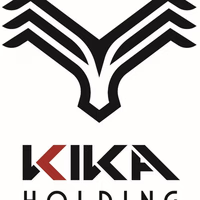 Kika Holding Trading 1 months ago
Kika Holding Trading 1 months ago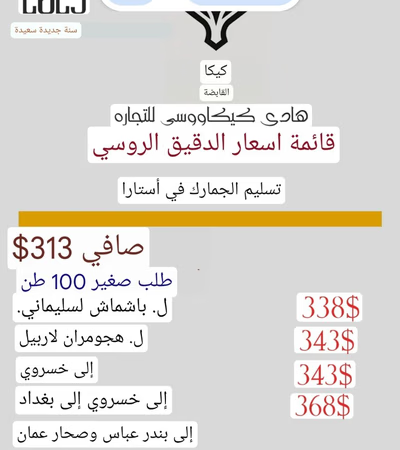 Oman
First Grade Flour from Russia
Oman
First Grade Flour from Russia
First Grade Flour from RussiaDetails
-
 Nader 1 months ago
Nader 1 months ago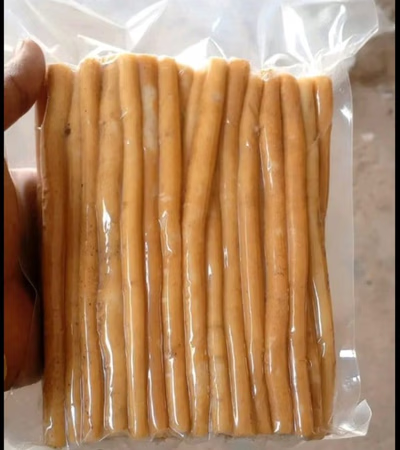 Egypt
The Miswak and the Prayer Cap
Egypt
The Miswak and the Prayer Cap
Fresh green miswakDetails
-
 Petro Kimia Alfa 1 months ago
Petro Kimia Alfa 1 months ago Turkey
Petrochemical Products
Turkey
Petrochemical Products
Exporter of petrochemical products from IranDetails
-
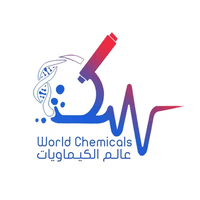 Aalam Alkimawiyat 8 months ago
Aalam Alkimawiyat 8 months ago Yemen
Aalam Alkimawiyat
Yemen
Aalam Alkimawiyat
Aalam Alkimawiyat for medical and laboratory supplies in Sana'a, Yemen offers you a wide range of high-quality chemical and medical products to meet y...Details
-
Acrylonitrile Butadiene Styrene Trade in West Asia
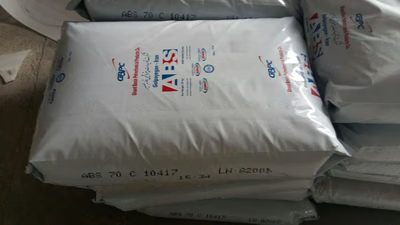
Acrylonitrile Butadiene Styrene (ABS) is a resilient thermoplastic polymer widely used in industries such as automotive, electronics, and construction. In the Middle East, the ABS market is experiencing notable growth due to increasing demand across these sectors. This expansion is supported by the region"s robust petrochemical industry, which ensures a steady supply of essential feedstocks such as butadiene, acrylonitrile, and styrene. Key West Asian players leverage their proximity to raw material sources, including ethylene, polypropylene, and styrene butadiene rubber, to strengthen supply chains and meet regional and international demand. B2B trade platforms, such as Aritral, play a pivotal role in enhancing ABS trade dynamics in West Asia. These platforms enable verified exporters and importers to connect, ensuring transparency and reliability in trade. Regional product listings and market insights on commodity trade further help businesses make informed decisions. The West Asian ABS plastic market benefits from these tools, driving both local and international trade.
ABS polymer is especially favored in plastic injection molding, where its high impact resistance, glossy finish, and thermal stability are critical for creating durable products. However, challenges such as fluctuating raw material prices and competition from alternative resins like nylon and polybutadiene impact the market. As the broader petrochemical sector in the Middle East, including butane and propane markets, continues to expand, opportunities for ABS production and trade are set to increase. Verified B2B supply chain platforms are vital for navigating these dynamics, fostering connections, and driving growth in global ABS trade. Aritral simplifies these processes with its AI-driven tools, enabling seamless trade of ABS and other petrochemical commodities. "
-
Exploring Butane and Propane Trade Dynamics in Asia
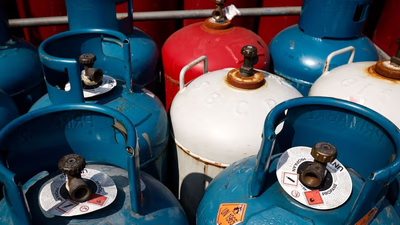
Butane and propane, two liquefied petroleum gases (LPG), are pivotal commodities in the Middle East and West Asia"s petrochemical trade landscape. These hydrocarbons play a significant role in fueling industrial processes, energy production, and chemical manufacturing. As demand surges in Asia, particularly for reliable energy sources and petrochemical feedstocks, butane and propane trade dynamics have evolved to become more interconnected across regions. Verified exporters and importers utilize B2B marketplaces and trade platforms to streamline supply chains and ensure quality standards. In the Middle East, both butane and propane are by-products of extensive oil and gas refining processes, making the region a leading supply hub. As West Asia boosts its import-export capabilities, these commodities are increasingly transported to energy-hungry Asian markets. B2B platforms such as regional trade advertising platforms and networking solutions facilitate smoother transactions and more transparent business operations, allowing suppliers to connect directly with buyers seeking bulk LPG solutions. The petrochemical derivatives of butane and propane, including ethylene and polypropylene, further underscore their economic importance.
Ethylene serves as a cornerstone for producing polyethylene and specialty resins, while polypropylene has witnessed soaring demand across sectors such as packaging and automotive manufacturing. Insights into styrene butadiene rubber (SBR) and acrylonitrile butadiene styrene (ABS) highlight their relevance in industrial applications, reinforcing the value of verified B2B platforms in shaping trade dynamics for these derivatives across West Asia and the Middle East. Aritral, an AI-driven B2B platform, simplifies international trade by offering AI-powered marketing, direct communication tools, and verified product listings. Such platforms are critical for connecting supply chains in the butane and propane markets, ensuring efficient trade solutions and fostering regional growth. "
-
Ethylene Trade in the Middle East: Petrochemical Opportunities
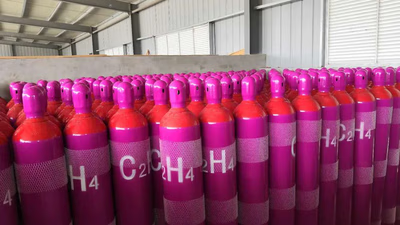
Ethylene, a vital petrochemical feedstock, is the cornerstone of several industrial applications, including the production of Polypropylene, Polybutadiene, Styrene Butadiene Rubber (SBR), Acrylonitrile Butadiene Styrene (ABS), Nylon, and various resins. In the Middle East, particularly West Asia, ethylene production and consumption are central to the region"s thriving petrochemical industry. The Persian Gulf countries are among the world’s largest producers and exporters of ethylene due to abundant natural gas resources, which serve as a key raw material for its production. On platforms such as Aritral, businesses can buy and sell ethylene, enabling verified exporters and importers to connect seamlessly. As an AI-driven B2B marketplace, it provides supply chain solutions, market insights, and verified product listings tailored to the unique trade dynamics of the Middle East. Ethylene trade in West Asia benefits from robust commodity markets, competitive pricing, and strategic geographic positioning that facilitates global exports. Polypropylene, another significant derivative of ethylene, sees high demand in Southwest Asian markets. Middle Eastern suppliers dominate this segment, exporting to both regional and global markets.
Similarly, Polybutadiene and Styrene Butadiene Rubber (SBR) are integral to the automotive and industrial sectors, with production concentrated in the Middle East. Resins such as polyester, phenolic, silicone, and epoxy, alongside Nylon and LPG derivatives like Butane and Propane, are essential commodities traded across the Middle East and Asia. These products align with the region’s emphasis on petrochemical exports, supported by trade platforms that streamline buyer-seller interactions and provide real-time market trends. Aritral simplifies this ecosystem by offering AI-powered marketing and direct communication tools, ensuring efficient transactions across borders. Businesses seeking to leverage Middle Eastern petrochemical markets can access specialized insights and connect with verified partners efficiently. "
-
Nylon Trade in Middle East & West Asia: Insights, Trends, and Growth
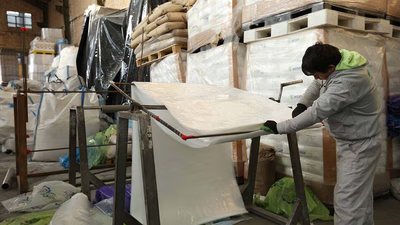
Nylon, a versatile polyamide polymer, has become a cornerstone of global trade, particularly in the Middle East and West Asia. The region"s robust petrochemical infrastructure, driven by abundant resources like ethylene, butane, and propane, provides a solid foundation for nylon production and distribution. Ethylene, a critical feedstock for nylon, plays a pivotal role in shaping trade dynamics in West Asia, linking upstream petrochemical capabilities with downstream industrial applications. Verified B2B marketplaces in Asia are instrumental in facilitating this trade, connecting suppliers with buyers and ensuring transparency across supply chains. Polyamide polymers, including nylon, see significant demand across industries like textiles, automotive, and industrial components. The Middle East nylon market has experienced steady growth, supported by regional product listings and trade advertising platforms that promote buying and selling in West Asian countries. Insights from verified exporters and importers reveal that nylon enjoys high demand due to its durability, versatility, and lightweight properties. Trade dynamics are further influenced by polypropylene and styrene butadiene rubber (SBR) markets, which complement nylon applications in textiles and industrial sectors.
Resins such as acrylonitrile butadiene styrene (ABS) and polybutadiene rubber also play crucial roles in regional supply chains, meeting diverse industrial needs. Middle East trade platforms facilitate these interactions, leveraging AI-driven tools for market insights and supply chain solutions in Asia. Aritral, an AI-powered B2B platform, simplifies the trade of nylon and other polyamide polymers via services like global sales assistance, product listings, and AI-powered marketing. By connecting verified exporters and importers, Aritral ensures seamless trade operations in the nylon market and beyond, contributing to the growing prominence of West Asia in global trade. "
-
Polybutadiene Rubber Market Insights in Middle East & Asia
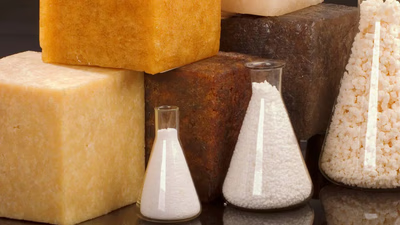
Polybutadiene, a high-demand synthetic rubber, plays a pivotal role in the petrochemical trade dynamics of the Middle East and West Asia. As one of the largest producers of butadiene rubber, the region benefits from abundant feedstocks like butane and propane, crucial for polybutadiene production. This advantage positions the Middle East as a competitive supplier of Polybutadiene Rubber (PBR) to global markets. The PBR market in West Asia is driven by its use in tire manufacturing, industrial goods, and plastics, with applications extending to Styrene Butadiene Rubber (SBR) and Acrylonitrile Butadiene Styrene (ABS) production. Given its chemical properties like high wear resistance and low-temperature flexibility, Polybutadiene continues to command strong demand in regional and global industries. Verified B2B marketplaces in Asia facilitate the trade of PBR by connecting regional exporters with global importers. These platforms also offer market insights, enabling stakeholders to track Polybutadiene Rubber prices, which vary based on feedstock costs, production rates, and regional demand. Additionally, innovations in supply chain solutions have streamlined the export of PBR, making West Asia a central hub for petrochemical trade.
In the broader petrochemical spectrum, ethylene and polypropylene also significantly impact West Asia"s trade. Ethylene serves as a key precursor in producing PBR and other derivatives, while polypropylene’s versatility supports its soaring demand in Asia. These commodities, alongside polybutadiene, highlight the region’s growing importance in global trade. Business networking platforms like Aritral simplify these trade dynamics by offering verified regional product listings, AI-powered marketing, and connecting exporters and importers. As the Middle East strengthens its position as a petrochemical powerhouse, Polybutadiene and associated products remain at the forefront of the region"s trade growth.
-
Polypropylene Trade Dynamics in Middle East and Asia
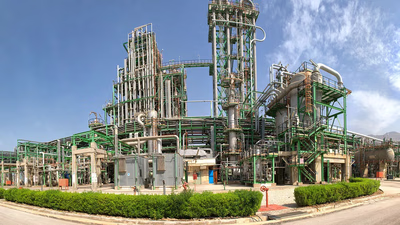
Polypropylene, a versatile thermoplastic polymer, plays a pivotal role in the global petrochemical industry, particularly in West Asia and the Middle East. As one of the most widely used plastics, it is produced from propylene, a by-product of ethylene production. The Middle East stands as a key hub for polypropylene manufacturing, with countries like Saudi Arabia, Qatar, and the UAE leading production due to their abundant petrochemical resources. These producers leverage advanced refinery systems and access to raw materials like butane and propane, essential for propylene synthesis. Polypropylene is used across diverse industries, including packaging, automotive, textiles, and consumer goods. Its demand in the Asian market is soaring due to the rapid industrial growth and infrastructural developments in countries like India and China. Verified exporters and importers in these regions rely heavily on B2B marketplaces for efficient supply chain solutions and trade networking. Middle Eastern polypropylene suppliers capitalize on this surge by connecting through regional product listings and trade advertising platforms tailored for commodity trade.
The polypropylene market in West Asia is bolstered by its proximity to major ethylene and polybutadiene production centers. Ethylene, the backbone of the petrochemical industry, is a critical feedstock influencing polypropylene trade dynamics. Furthermore, derivatives like Styrene Butadiene Rubber (SBR) and Acrylonitrile Butadiene Styrene (ABS) are also integral to the regional market. Trade insights and verified B2B platforms help manufacturers and suppliers build strong networks while enhancing transparency in pricing and quality standards. Aritral offers AI-driven solutions for international trade, simplifying communication between stakeholders in the polypropylene sector. With tools like global sales assistance and AI-powered marketing, it enables smoother transactions and better visibility in the Southwest Asia polypropylene sale market.
-
Styrene Butadiene Rubber: Trade Dynamics in West Asia & Middle East
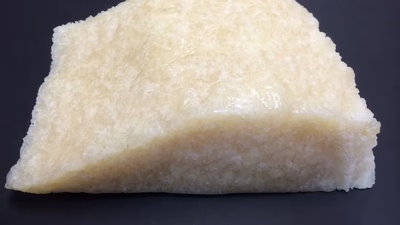
Styrene Butadiene Rubber (SBR) is a key petrochemical product driving trade dynamics in West Asia and the Middle East. SBR, a synthetic rubber derived from butadiene and styrene, is widely used in industries such as automotive, construction, and footwear. The Middle East has positioned itself as a significant hub for SBR production and export, leveraging its abundant petrochemical resources, including butane, propane, and ethylene. Verified exporters and importers on Middle East trade platforms facilitate the exchange of SBR and related petrochemicals, ensuring streamlined supply chain solutions across Asia. West Asia’s SBR market benefits from increasing demand in Asian markets, particularly in countries like India and China, which are major consumers of automotive tires—the largest industry reliant on SBR. Polypropylene and ethylene also play pivotal roles in shaping trade dynamics in the region, with polypropylene serving as a complementary product in packaging and textiles. Trade advertising platforms in the Middle East enable businesses to gain actionable market insights and promote SBR alongside related commodities like Acrylonitrile Butadiene Styrene (ABS), resin, nylon, and polybutadiene. Advancements in logistics and verified B2B marketplaces in Asia have streamlined the transportation and storage of SBR.
General specifications of SBR highlight its superior abrasion resistance, durability, and cost-effectiveness compared to natural rubber, making it a preferred choice for manufacturers. However, challenges such as temperature sensitivity during storage and transportation require precise supply chain solutions. Aritral, an AI-driven B2B platform, simplifies the buying and selling of SBR and other petrochemicals across West Asia and the Middle East. By offering verified regional product listings and enabling direct communication between businesses, Aritral enhances business networking and global sales assistance for exporters and importers. Its AI-powered marketing tools ensure that trade opportunities for products like SBR are maximized in competitive markets.
-
Resin Trade Dynamics in Middle East & Asia: Market Insights
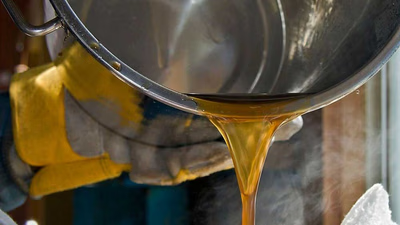
The resin market in West Asia and the Middle East is a dynamic hub for global petrochemical trade, driven by diverse product demand and strong regional production capabilities. Resins such as polypropylene, polybutadiene, and nylon, along with specialty products like phenolic, alkyd, silicone, and epoxy resins, play crucial roles in industrial applications ranging from packaging to automotive manufacturing. The Middle East, with its abundant ethylene production, serves as a key supplier of resin derivatives, shaping trade dynamics across Asia. Ethylene, a vital petrochemical feedstock, is widely utilized for producing polyethylene and other derivatives, making it a cornerstone of Middle Eastern exports. Verified B2B platforms have enhanced the efficiency of ethylene trade by providing market insights and connecting reliable exporters and importers. Polypropylene, another major resin, has witnessed increasing demand in Asian markets due to its versatility and cost-effectiveness. Middle Eastern producers capitalizing on their petrochemical infrastructure have made the region a significant export hub for polypropylene. Similarly, the trade of styrene butadiene rubber (SBR) and acrylonitrile butadiene styrene (ABS) has grown steadily, with B2B marketplaces playing a pivotal role in facilitating transactions, providing supply chain solutions, and promoting verified listings.
Specialty resins such as polyester, phenolic, alkyd, and epoxy resins are also integral to the Middle Eastern export portfolio, catering to industries like construction, electronics, and coatings. The demand for nylon, propelled by industrial applications, is another growing segment in the regional market. Additionally, butane and propane, critical for LPG production, further underscore the region"s petrochemical prominence. Platforms like Aritral simplify the complexities of resin trade by enabling direct communication, offering product listings, and delivering AI-driven marketing solutions. These tools empower businesses to navigate the resin market effectively while leveraging Middle Eastern supply chain strengths and export opportunities. "
-
The Most Important Petrochemical Products
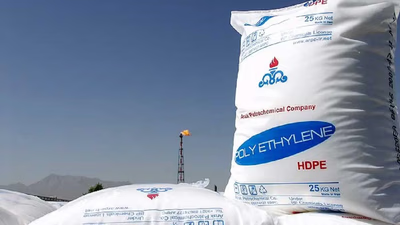
Petrochemical products are essential raw materials across various industries, including automotive, construction, packaging, textiles, and agriculture. They drive economic growth by creating jobs and contributing to GDP through exports. Key petrochemicals like ethylene and propylene serve as building blocks for numerous products, including plastics, fertilizers, and chemicals. Ethylene is the most produced plastic globally, while propylene is crucial for manufacturing versatile plastics and chemicals. The petrochemical industry also plays a vital role in agriculture by providing fertilizers that enhance crop yields. Petrochemical products can be categorized into basic, intermediate, and final products, each serving specific industrial needs. The versatility of petrochemicals allows for innovation in product development, improving performance and functionality across applications. Additionally, these products contribute to energy efficiency, with lightweight materials reducing fuel consumption in vehicles and enhancing insulation in buildings. Overall, petrochemicals are integral to modern life, enhancing safety, convenience, and sustainability.
-
West Asian (Middle East) Petrochemical Products
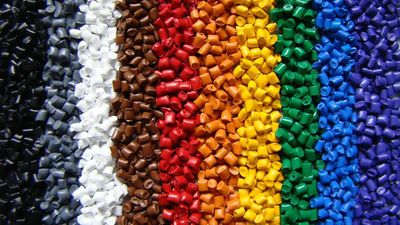
The West Asian petrochemical industry is a vital sector, leveraging abundant hydrocarbons from crude oil and natural gas. Major countries like Saudi Arabia, Iran, Qatar, the UAE, and Kuwait are key players in the production and export of a diverse range of petrochemical products. These include essential materials such as ethylene, propylene, methanol, and various plastics like polyethylene and polypropylene. Ethylene serves as a primary building block for polyethylene, widely used in packaging and construction, while propylene is crucial for producing polypropylene, utilized in automotive and consumer goods. The industry also produces ammonia and urea, essential for fertilizers, and various aromatic compounds used in pharmaceuticals and synthetic materials. The economic impact of the petrochemical sector is significant, contributing to job creation, foreign exchange earnings, and industrial diversification in the region. As the Middle East transitions from crude oil exports to value-added petrochemical products, the focus shifts towards enhancing domestic production and expanding export capabilities. This shift reflects a broader trend in the global market, where the demand for polymer and plastic products continues to rise, positioning West Asia as a critical hub in the global petrochemical landscape.
-
Crude Oil Refining in West Asia (Middle East)
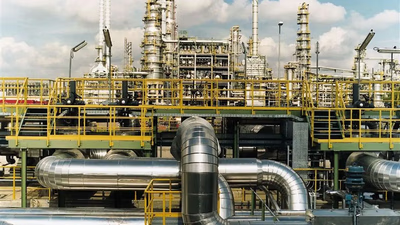
West Asia, rich in crude oil reserves, is a leading producer with countries like Saudi Arabia, Iraq, Iran, Kuwait, and the UAE operating advanced refineries. These facilities utilize cutting-edge technologies to enhance efficiency and product yield. The refining process begins with distillation, separating crude oil into lighter and heavier fractions. Subsequent conversion processes, such as catalytic cracking and hydrocracking, transform heavier fractions into valuable products like gasoline, diesel, and jet fuel. The refining output is categorized into six main groups, including naphtha, ethane, kerosene, propane, and butane, each yielding diverse products essential for various industries. Notably, chemical fertilizers and plastic raw materials are significant outputs, supporting agriculture and manufacturing. The integration of refineries with petrochemical complexes further amplifies the value derived from crude oil, producing key feedstocks like ethylene and propylene for the petrochemical sector. This interconnectedness between refining and petrochemicals is vital for economic growth in the region, meeting energy and material demands across multiple sectors.
-
Petrochemical Polymer and Plastic Products
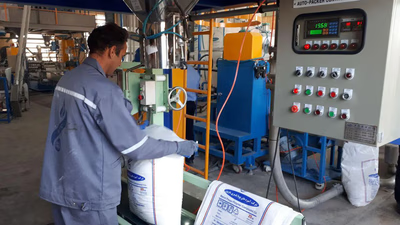
Petrochemical polymers and plastics are essential materials across diverse industries due to their versatility, durability, and cost-effectiveness. They can be molded into various shapes and sizes, making them suitable for applications in packaging, construction, automotive, electronics, healthcare, and consumer goods. Plastics like polyethylene and polypropylene are widely used for their chemical resistance and longevity. The ability to withstand harsh conditions and provide safety in applications such as food packaging and medical devices highlights their importance. The production of plastics is categorized into thermoplastics, thermostats, and elastomers, each with unique properties. PVC, polystyrene, PET, and polyurethane are notable examples, each serving specific functions in construction, insulation, and consumer products. The petrochemical industry focuses on producing granules, which are essential for manufacturing various plastic products. While domestic production has increased, there remains a reliance on imports for certain materials.
However, advancements in local manufacturing capabilities are reducing dependency on foreign products. The lightweight nature of plastics also contributes to improved fuel efficiency in vehicles and lower transportation costs, making them a preferred choice in many applications. Overall, the ongoing innovation and development in petrochemical polymers and plastics are crucial for meeting market demands and enhancing product functionality.



















